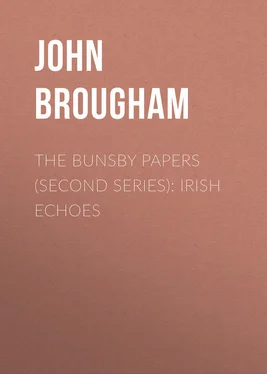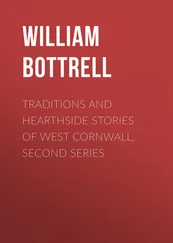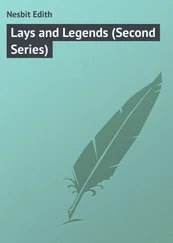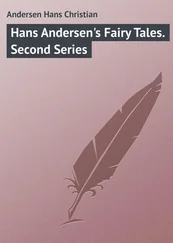John Brougham - The Bunsby Papers (second series) - Irish Echoes
Здесь есть возможность читать онлайн «John Brougham - The Bunsby Papers (second series) - Irish Echoes» — ознакомительный отрывок электронной книги совершенно бесплатно, а после прочтения отрывка купить полную версию. В некоторых случаях можно слушать аудио, скачать через торрент в формате fb2 и присутствует краткое содержание. Жанр: foreign_antique, foreign_prose, на английском языке. Описание произведения, (предисловие) а так же отзывы посетителей доступны на портале библиотеки ЛибКат.
- Название:The Bunsby Papers (second series): Irish Echoes
- Автор:
- Жанр:
- Год:неизвестен
- ISBN:нет данных
- Рейтинг книги:5 / 5. Голосов: 1
-
Избранное:Добавить в избранное
- Отзывы:
-
Ваша оценка:
- 100
- 1
- 2
- 3
- 4
- 5
The Bunsby Papers (second series): Irish Echoes: краткое содержание, описание и аннотация
Предлагаем к чтению аннотацию, описание, краткое содержание или предисловие (зависит от того, что написал сам автор книги «The Bunsby Papers (second series): Irish Echoes»). Если вы не нашли необходимую информацию о книге — напишите в комментариях, мы постараемся отыскать её.
The Bunsby Papers (second series): Irish Echoes — читать онлайн ознакомительный отрывок
Ниже представлен текст книги, разбитый по страницам. Система сохранения места последней прочитанной страницы, позволяет с удобством читать онлайн бесплатно книгу «The Bunsby Papers (second series): Irish Echoes», без необходимости каждый раз заново искать на чём Вы остановились. Поставьте закладку, и сможете в любой момент перейти на страницу, на которой закончили чтение.
Интервал:
Закладка:
John Brougham
The Bunsby Papers (second series): Irish Echoes
PREFACE
Perhaps the most interesting, if not the most instructive, records of any nation, are its traditions, and legendary tales, and in no part of the world can there be found so varied and whimsical a store, as in Ireland. Every portion of the country; every city, town, and village; nay, almost every family of the "real ould stock" has its representative share in the general fund.
It is a very curious study to trace the analogy between the early mythic stories of all countries, their similarity being strikingly obvious. The great landmarks of actual history are by them vividly defined, and their integrity sustained. As an instance – the universal nature of the mighty deluge which swept the youthful world, finds its record not alone in the annals of that wondrous people, in whose line has descended all we know of learning and religion; but also in the oral traditions and semi-historic accounts of many other nations which have since merged into the stream of chronology.
I mention this particular instance for the purpose of fixing the originality of an early anecdote, very often reproduced and claimed by sundry joke chroniclers, as well as to give the Irish tradition upon the same subject. Here are the words of the veracious historian Leland:
"When Noah was building the ark to preserve himself and his family, one Bith, a man of note and substance – an antideluvian millionaire, no doubt – with his daughter Sesar, applied to the Patriarch for admission, thinking, of course, that all he had to do was to step up to the captain's office, and settle. But Noah denied their request – probably from want of accommodation. On receiving this repulse, Bith collected his family together, and, as the result of their deliberations, they resolved to build a similar vessel for their own private use – a very sensible determination it must be conceded. When the ship was finished, Bith together with his wife, Beatha, his two daughters, Sesar and Barran, with their respective husbands, Ladhra and Fionton, and fifty of the most beautiful women – inordinate rascals – that could be induced to venture along with them, took passage therein; but unfortunately, not knowing the exact period when the rain would begin to descend – a diluvian 'Merriam' would have been of great value – they put to sea forty days too soon, and these raw sailors, for want of skill in navigation, were tossed and driven from sea to sea for the space of seven years and a quarter – how they victualled their independent ark the historian deems a matter of no import – at last, however, they landed upon the western coast of Ireland at a place called Dunnamberk, in the barony of Corchadie Ibhne, near about sundown. When they found themselves safely ashore, the three men agreed to divide the fifty women between them. Bith, besides his wife, had seventeen for his share, Fionton had his wife and seventeen more, and Ladhra was satisfied with the sixteen that remained – good easy man."
In justice to our historian it must be admitted that he expresses strong doubts as to the truth of the legend. "It is thought," says he, "to be an unaccountable relation, for, from whence intelligence could be had of what passed in this island before the flood, is out of my power to conceive. We have, indeed, some ancient manuscripts that give a legendary account of four persons who, they say, lived before and after the deluge, and afterwards divided and possessed themselves of the four parts of the world; but our antiquaries that are best acquainted with the history of Ireland, reject such fables with just indignation. As for such of them who say that Fionton was drowned in the flood, and afterwards came to life and lived long enough to publish the antediluvian history of the island – probably with some enterprising patriarchal "Bunce Brothers" – what can they mean, except to corrupt and perplex the original annals of the country?" – What, indeed, Mr. Leland?
But this, you'll say, has nothing to do with Irish Echoes . Well, to be candid, I don't think it has. The fact is, my thoughts took an erratic flight in that direction, and this obedient servant between my thumb and fingers had to accompany them, nolens volens .
With regard to the pages which follow, I have endeavored to imbue them more with a Hibernian spirit, than with any attempt at orthographic peculiarity, inasmuch as I consider it but a factitious species of wit which hinges upon an amount of bad spelling. I have, therefore, abstained in a great measure from perverting the language, only doing so where it is absolutely necessary to give individual character.
Some of the sketches are now for the first time presented; others have before appeared, but such as they are, here they are; all I can say in their favor is, that they were drawn from no source but my own invention; could I have done better, be assured I would; and yet, although they are not as perfect as I might wish them to be, still, I am not without hope, that some amusement, and also – or my arrows have indeed been shot awry – some incentives to a deeper reflection than accompanies the mere story-telling, may be found scattered here and there amongst them.
DAN DUFF'S WISH, AND WHAT CAME OF IT
CHAPTER I
The burthen wearies him who bears it;
And the shoe pinches him who wears it.
A very snug, comfort-suggesting apartment is the parlor of Squire Bulworthy, the rich grazier, upon which you and I, friend reader, are about so unceremoniously to intrude ourselves.
If you will but look around you, you will see that all the appliances of home delectation, procurable in so insignificant a town as Ballinasquash, are here gathered together; that looking-glass is the pride of the domestic circle and the envy of the neighborhood; those easy-chairs look as though tired humanity might find instant relief from their ample plumpness; the side-board, with its brilliant array of flashing decanters and hospitable-looking glasses, not mean, tailor-souled, thimble-measure aggravators, but huge whisky-punch goblets and wines of capacious magnitude; then the carpet, kidderminster to a certainty, dazzling in the variety of its crimson and blue, and yellow, displaying apochryphal flowers and inexplicable flourishes, such as put to the blush the most profound efforts of unartistic nature.
You must agree with me, taken altogether, that there is an air of supreme content and well-to-do-ableness about the entire surroundings, rendered absolutely certain by the smirking countenance of the Squire himself, as it smiles complacently upon you from that prodigiously-ornamented frame – that jolly red nose is unmistakably indicative of good living – those twinkling eyes display the very fire of self-satisfaction; the town counsellor evidences itself in the-going-to-address-the-meeting attitude, and the man of means flashes from every link of that ponderous watch-chain and coquets amongst those massive seals.
Bulworthy is evidently well off.
"Hallo, what noise is that proceeding from yonder room?"
"Get out, you scoundrel."
It is a fat, gurgling, wheezy kind of voice, Bulworthy's, and speaking sets him coughing an uncomfortable, apoplectic sort of cough, like the sough of wind escaping from a cracked bellows.
"Get out, you vagabone; ugh! ouf!"
A singular-looking man-servant makes a sudden exit from the room, very evidently hurt, physically, just as an equally singular female domestic enters at the door, having a substantial matutinal repast upon a large-sized tray.
"Keep us from harum," said she, in a delicious Tipperary brogue, soft as honey; "and what's that?"
Читать дальшеИнтервал:
Закладка:
Похожие книги на «The Bunsby Papers (second series): Irish Echoes»
Представляем Вашему вниманию похожие книги на «The Bunsby Papers (second series): Irish Echoes» списком для выбора. Мы отобрали схожую по названию и смыслу литературу в надежде предоставить читателям больше вариантов отыскать новые, интересные, ещё непрочитанные произведения.
Обсуждение, отзывы о книге «The Bunsby Papers (second series): Irish Echoes» и просто собственные мнения читателей. Оставьте ваши комментарии, напишите, что Вы думаете о произведении, его смысле или главных героях. Укажите что конкретно понравилось, а что нет, и почему Вы так считаете.












